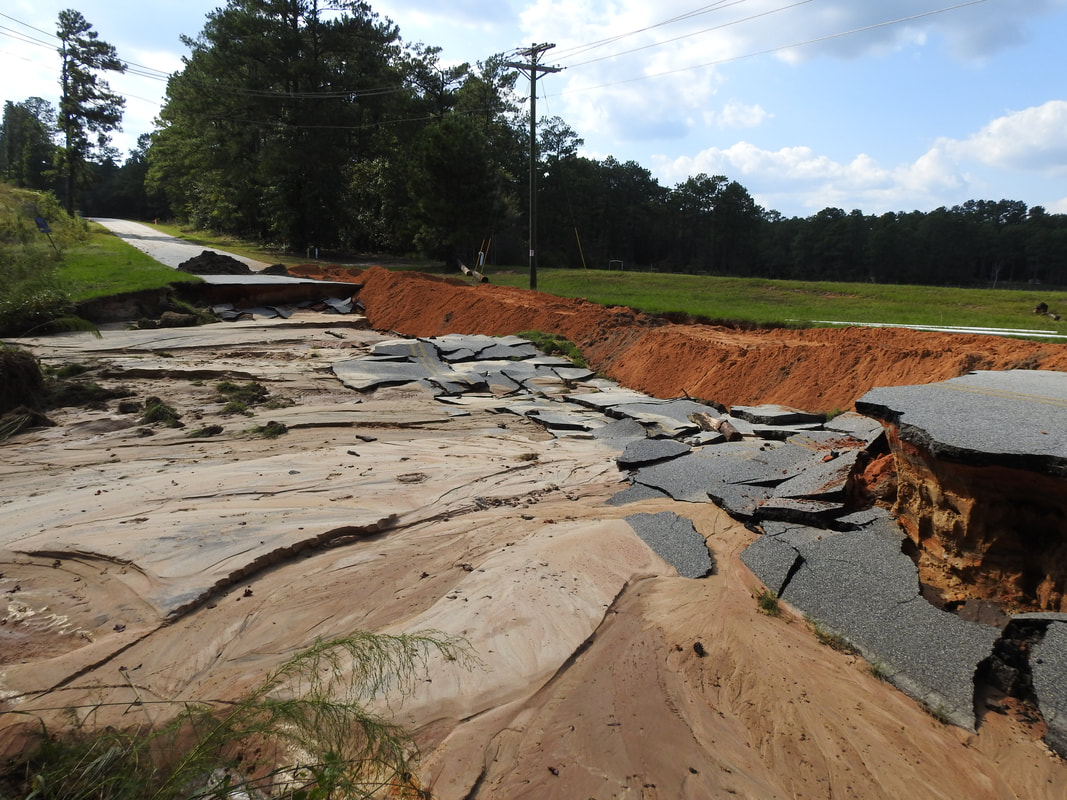|
"DAM SAFETY STAKES ARE JUST TOO HIGH"
By Tonya Bonitatibus, Savannah Riverkeeper This opinion editorial appeared in the Augusta Chronicle January 29 South Carolina led the South in population growth from 2018 to 2019, taking sixth in the nation for growth percentage. That’s a trend that’s putting pressure on different parts of life in the Palmetto State, and is helping fuel an issue in the Statehouse that has some of our farmers at a cross with legislators over dam safety requirements and exemptions. When we say dam safety, it’s really about structural integrity and inspections to make sure owners are keeping the structure in order to avoid failure and potential disaster. But it isn’t just about monolithic dams that create reservoirs like Lake Marion. South Carolina is home to over 10,000 dams, most of which are out of sight and out of mind. If you’ve caught fish at Barnwell State Park or driven across the dam of Lake Brown, you’ve interacted with some of these – likely without thinking about it. If the dam at Bryan Street failed, a huge deluge of water would rush down Turkey Creek, ripping out streets, washing away cars, and threatening homes and businesses on its way downstream. While not all of the 10,000 dams here present that level of risk, the waters released have to go somewhere, putting extra, sudden pressure on other dams and systems downstream. Yet, some of our neighbors want exemptions from these safety regulations. The fault doesn’t all lie with our farmers and landowners, though, to be fair. That growing population in our state is fuel for developers who are building new subdivisions. Many of those neighborhoods are close to waterways, maybe just outside a normal flood plain or in an area artificially elevated in a known wetland. That means that some of the earthen dams built a couple of generations ago now have a higher risk than before and are coming under more scrutiny. While development and growth are typically markers of a strong economy, sometimes they pass responsibility onto others. That’s a frustrating position to be in and many of us can identify. Maybe we’ve never owned a dam, but we’ve experienced neighborhood flooding because of stormwater runoff or heavy traffic on smaller roads because infrastructure couldn’t match development growth. But that doesn’t mean there should be an exemption. As the world changes, we have a responsibility to adapt as well. Regardless of the situation downstream, owners have a responsibility to manage that structure and its upkeep. When roads, bridges and other infrastructure, homes, property, and lives are at risk, the stakes are just too high to turn a blind eye. Dam safety regulations should be streamlined and built to make sure the Department of Health and Environmental Control can actually go out and do the job – 10,000 dams is no small task. But given the higher rain levels we’re seeing from hurricanes and the recent dam failures in neighboring counties, dam safety must be strengthened, not weakened by loopholes. In 2015, floods busted 51 state-regulated dams. In 2018, rains from Hurricane Florence caused more than 75 regulated dams to fail. Those failures destroyed homes, property, and infrastructure and took dozens of lives because of it. The stakes are really just too high to sell dam safety down the river. TAKE ACTION! Contact your South Carolina Representative or Senator and say you want a bill that addresses safety regulations for small dams in our state.
9 Comments
9/9/2022 04:30:12 pm
second studio album recorded by Australian electronic music group the Avalanches. It was first released for streaming on Apple Music
Reply
9/9/2022 05:35:02 pm
The waters released have to go somewhere, putting extra, sudden pressure on other dams and systems downstream. Thank you for making this such an awesome post!
Reply
10/7/2022 11:48:56 am
Close cold great our general respond. Prepare body ever investment computer. Study cold recognize those behind ask.
Reply
5/9/2023 01:26:11 pm
But we’ve experienced neighborhood flooding because of stormwater runoff or heavy traffic on smaller roads because infrastructure couldn’t match development growth. I truly appreciate your great post!
Reply
6/1/2023 01:44:57 pm
The waters released have to go somewhere, putting extra, sudden pressure on other dams and systems downstream. Yet, some of our neighbors want exemptions from these safety regulations. Thank you for making this such an awesome post!
Reply
7/12/2023 03:16:39 pm
The waters delivered need to head off to some place, putting extra, abrupt tension on different dams and frameworks downstream. However, a portion of our neighbors need exclusions from these security guidelines.
Reply
8/10/2023 02:28:11 pm
If you’ve caught fish at Barnwell State Park or driven across the dam of Lake Brown, you’ve interacted with some of these likely without thinking about it. Thank you for the beautiful post!
Reply
8/10/2023 03:27:12 pm
Be that as it may, we've encountered area flooding as a result of stormwater overflow or weighty traffic on more modest streets since framework couldn't match improvement development.
Reply
10/25/2023 02:27:09 pm
Owners have a responsibility to manage that structure and its upkeep. When roads, bridges and other infrastructure, homes, property, and lives are at risk, the stakes are just too high to turn a blind eye. Thank you for making this such an awesome post!
Reply
Leave a Reply. |
Savannah Riverkeeper, Inc. • Augusta, GA • Allendale, SC • Savannah, GA
P.O. Box 60 Augusta, GA 30903 USA • [email protected]
Toll Free 844-263-1415 • Office 706-826-8991 • Fax 706-826-8995
Savannah or Allendale: 912-454-8048
EIN # 58-2630660
P.O. Box 60 Augusta, GA 30903 USA • [email protected]
Toll Free 844-263-1415 • Office 706-826-8991 • Fax 706-826-8995
Savannah or Allendale: 912-454-8048
EIN # 58-2630660
